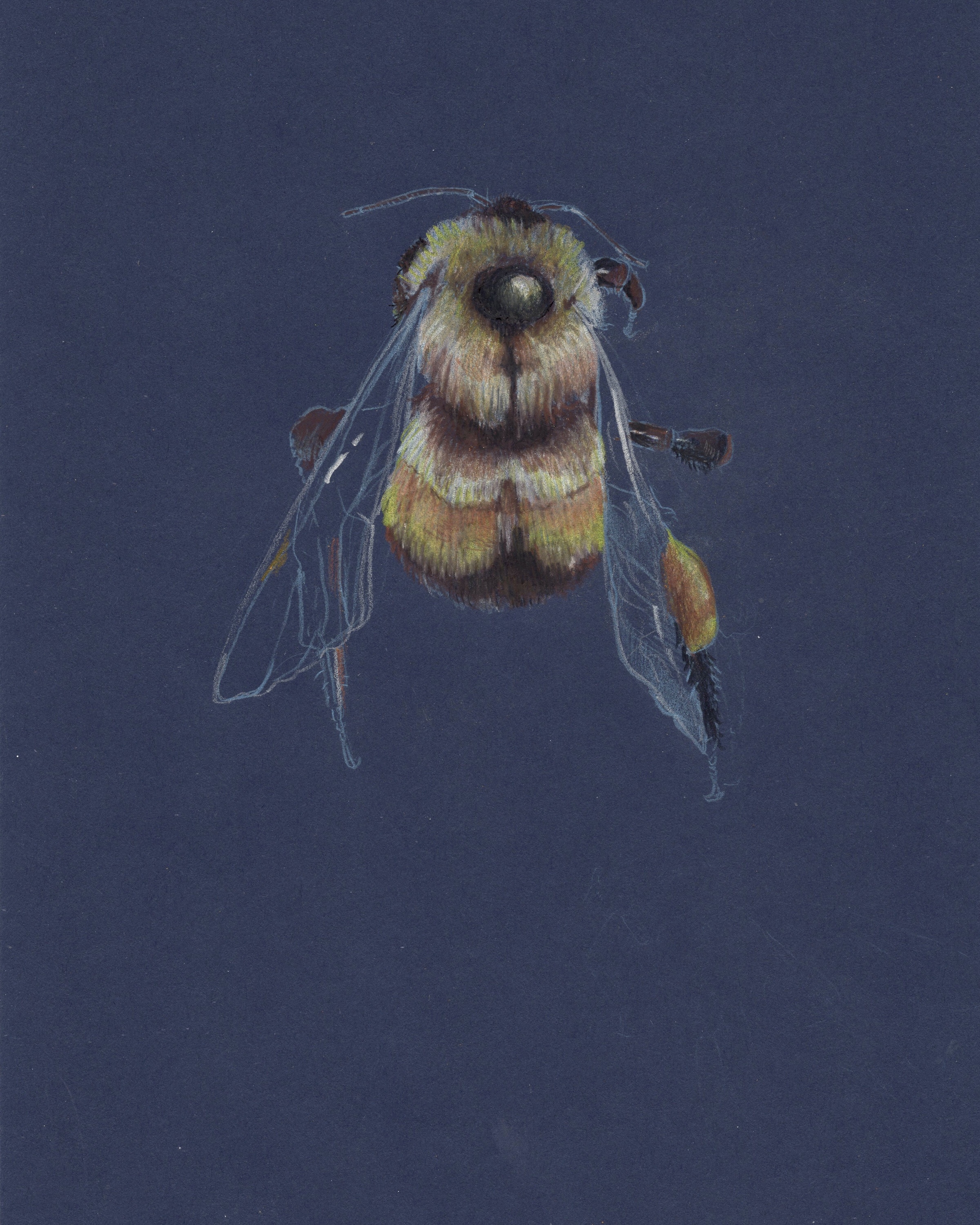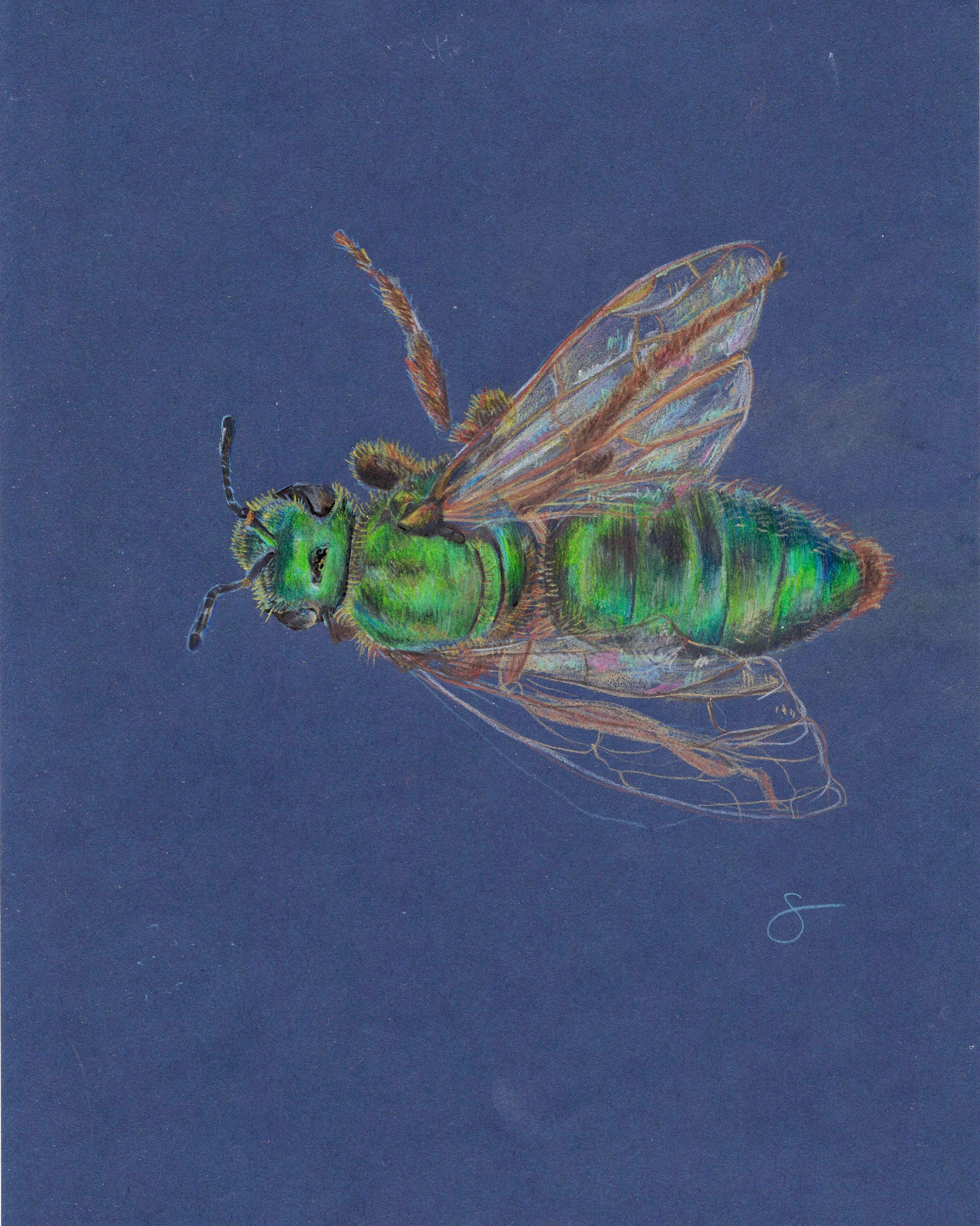GOLDEN
2019
A solo exhibition celebrating pollinators and their fauna.
This series is focused primarily on native pollinators, created with colored pencil, pen and
marker on navy blue paper.
The color blue is widely considered to symbolize wisdom, intelligence, faith, and truth. Some
even say heaven.
Throughout art history, artists find themselves inexplicably drawn to this color, like Yves Klein,
who held it akin to a higher power.
Blue is proven to provide a calming effect, and also represents strength and power in corporate
and political spheres.
I am fascinated by pollinators because they are not what you expect. They are not only bees,
but beetles, moths, butterflies, hummingbirds, and bats. They may be small, but our reliance
on them is foundational.
They are intricate, intelligent, organized, and beautiful.
In recent years however they have begun to decline in population. They are vanishing.
These works are meant to present the beautiful and complex world of pollination in a new light.
They are placed on a color that is considered sacred and true. They do not fill the page. They
are off center, natural. Most of these illustrations are uncomfortably empty, leaving the subject
featured yet isolated.
These small creatures are vital. Throughout ancient religion and mythology they are symbolic of
life and death. They are golden. They are a source of life for all species. It is time to celebrate
them.
It is time to value them.
It is time to actively protect them.
We will be better for it. The world will be better for it.
Other Facts:
Pollinators are vital to both corporate America and to every living individual. Over 30% of the
world’s food is dependent on pollinators. It is often said that every 3rd and 4th bite you eat, is
made possible by a pollinator. Yet, they are disappearing. They are threatened by pests,
fertilizer toxins, pesticides, urban and suburban sprawl, and extreme monocropping.
They are vital to our food source. They create and sustain employment in the agricultural
sector. They also create the food that feeds livestock and other domestic animals.
What can you do that makes a difference?
- Set out insect-accessible sugar water around your yard and home for pollinators to ‘refuel’
as they travel from plant to plant.
- As much as possible, buy from local, organic farmers.
- Plant diverse native flowers in your gardens and yards, and do not use chemical fertilizers.
- Speak to your local government officials, and ask them to actively work to protect
pollinators.
- Spread the word.




